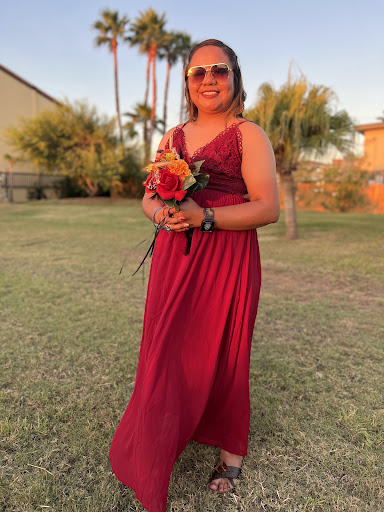Strategies for enhancing your marriage often hinge on effective communication. Open and honest dialogue can help you navigate misunderstandings and foster stronger emotional connections. You must actively listen, offer constructive feedback, and express your feelings clearly to cultivate a supportive environment. Additionally, regular check-ins can keep both partners on the same page and strengthen your bond. When both partners commit to these proactive communication techniques, you can significantly improve your relationship and build a lasting partnership.
Key Takeaways:
- Active Listening: Engaging fully in conversations by listening attentively fosters understanding and connection.
- Consistent Check-ins: Regularly discussing emotions and relationship dynamics keeps lines of communication open and healthy.
- Express Appreciation: Sharing gratitude and recognition strengthens bonds and promotes a positive atmosphere in the marriage.
The Importance of Effective Communication
Your relationship thrives on communication, making it the cornerstone of a healthy marriage. When you and your partner engage openly and honestly, you strengthen your bond and deepen your emotional connection. Effective communication allows you to navigate conflicts, express your needs, and share your joys. In turn, this fosters a sense of partnership that can weather the storms of life together.
Understanding Your Partner’s Perspective
Any effort to improve your marriage begins with understanding your partner’s perspective. Taking the time to see things from their viewpoint not only fosters empathy but also enhances your connection. By being open to their feelings and thoughts, you create an environment where both of you feel heard and valued, paving the way for constructive conversations.
The Role of Active Listening
Behind every effective communication strategy lies the power of active listening. This practice is fundamental to fostering respect and understanding in your marriage. When you actively listen to your partner, you demonstrate that their thoughts and feelings are significant to you. This dedication creates a strong emotional bond and encourages further openness in your interactions.
Active listening requires your full attention and engagement during conversations. It involves not just hearing words but also comprehending emotions and underlying messages. By practicing this skill, you can reduce misunderstandings and show your partner that you value their input. In turn, this cultivates a safe environment where both of you can express yourselves freely. The more you embrace active listening, the more positive interactions you will have, leading to a richer and more fulfilling relationship.
Verbal and Non-Verbal Communication
One of the most effective ways to maintain a healthy marriage is through clear verbal and non-verbal communication. You should be mindful that your words, tone, and gestures all play a substantial role in how your partner perceives your message. Being aware of both forms of communication allows you to express your feelings more accurately and ensures that your partner receives the intended message, fostering a deeper connection.
Expressing Emotions Clearly
Behind every strong relationship lies the ability to express emotions clearly. It’s imperative to articulate your feelings openly and honestly without ambiguous language. Doing so sets the foundation for vulnerability and trust, enabling both partners to navigate their emotional landscape together.
The Impact of Body Language
Against the backdrop of spoken words, your body language conveys powerful messages that can either support or contradict what you say. Your posture, facial expressions, and eye contact significantly affect the dynamics of your communication, influencing how your partner receives your message.
Consequently, when you maintain open body language—like facing your partner and making regular eye contact—you create an atmosphere of engagement and attentiveness. Alternatively, crossed arms or avoiding eye contact may suggest defensiveness or disinterest, leading to misunderstandings. By being aware of your body language and making adjustments as necessary, you can enhance the emotional resonance of your conversations, ultimately leading to a more harmonious marriage.
Conflict Resolution Techniques
Many couples face conflicts, but effective conflict resolution techniques can turn clashes into opportunities for growth. You should focus on understanding each other’s perspectives while seeking solutions together. Keep communication open and avoid blame, as it helps foster a supportive environment where both partners feel valued and heard.
Strategies for Healthy Disagreements
At times, disagreements are inevitable in any relationship. The key is to approach these situations with respect and a willingness to listen. Prioritize calm discussions, establish ground rules for conversations, and give each other space to express your feelings without interruption. This will cultivate an atmosphere conducive to resolving the issues at hand.
The Art of Compromise
To maintain harmony, mastering the art of compromise is vital for you and your partner. When both of you are willing to adjust your positions to find common ground, it can strengthen your bond. Compromise fosters collaboration and trust, showing that you value each other’s needs and perspectives. Effective negotiation helps create solutions that satisfy both parties, enhancing mutual respect. Ultimately, realizing that neither partner can have it all their way is a fundamental aspect of a healthy marriage that leads to lasting happiness.
Even though compromise may mean letting go of certain desires, it can lead to a more fulfilling relationship. By embracing flexibility, you engage in a process that nurtures empathy and understanding. This allows you to transform conflicts into productive discussions, promoting long-term satisfaction in your marriage. Through compromise, both you and your partner can feel a sense of ownership in your relationship, leading to greater harmony and connection.
Building Emotional Intimacy
Keep in mind that emotional intimacy is the foundation of a strong marriage. When both partners feel safe to share their thoughts and feelings, it helps to foster a deeper connection. This intimacy allows couples to support each other through life’s challenges and enhances overall relationship satisfaction.
Sharing Vulnerabilities
Among the most powerful ways to strengthen your emotional bond is by sharing your vulnerabilities. Opening up about your fears, insecurities, and past experiences can create a deeper understanding between you and your partner. This practice not only deepens trust but also reassures both partners that they are not alone in facing life’s difficulties.
Creating Safe Spaces for Dialogue
At the heart of effective communication lies the need for safe spaces where open dialogue can thrive. You should cultivate environments that encourage honesty and transparency, allowing both partners to express their thoughts and feelings without fear of judgment or backlash.
Understanding that communication flourishes in a secure environment is vital for your marital health. Creating these safe spaces involves actively listening, showing empathy, and practicing non-defensive communication. This encourages your partner to share openly, knowing that you value their perspective. By fostering an atmosphere of acceptance and respect, your dialogue can investigate into deeper issues, resolving conflicts and enhancing emotional intimacy. Ultimately, this supportive framework not only strengthens your connection but also builds a resilient partnership.
Regular Check-Ins and Relationship Maintenance
Once again, prioritizing regular check-ins can significantly enhance your marriage. These conversations allow you and your partner to connect, share feelings, and express any concerns in a safe environment. By creating a routine for emotional check-ups, you foster openness and honesty, enabling both of you to navigate challenges before they escalate.
The Benefits of Scheduled Conversations
Around your busy lives, scheduling conversations can provide structured time to address any issues or simply reconnect. These check-ins help you both to understand each other’s perspectives, reinforce your commitment, and celebrate small victories, contributing to a healthier, more fulfilling relationship.
Tools for Staying Connected
Against the daily distractions of life, various tools can help you maintain a strong connection with your partner. From shared calendars to relationship-focused apps, these resources can remind you to prioritize quality time together. Modern communication tools can also facilitate deeper engagement, making it easier to discuss important topics or simply check in throughout the day.
This intentional use of tools can streamline your efforts to stay connected, ensuring that you both are on the same page. Consider utilizing apps for shared goals, or set reminders for those all-important quality time moments. By incorporating tools that align with your needs and preferences, you strengthen your emotional bond and promote a positive atmosphere where both your voices are valued. This proactive approach helps avoid the dangers of emotional disconnect and reinforces your dedication to each other.
Seeking Professional Help
To navigate challenging times in your marriage, seeking professional help can be an effective option. Professional therapists or marriage counselors provide a neutral space for you and your partner to voice concerns, explore underlying issues, and foster healthier communication patterns. Engaging with a skilled professional not only promotes understanding but can also rekindle the emotional connection you once shared.
When to Consider Couples Therapy
By recognizing patterns of conflict or communication breakdowns in your relationship, you may find it beneficial to consider couples therapy. If you often feel more disconnected than connected, or if unresolved issues persist, stopping the cycle of negative interactions could be imperative. Seeking help earlier can pave the way for lasting relationship improvement.
Choosing the Right Professional
About finding a suitable therapist or counselor for you and your partner, it is important to evaluate their qualifications and approach to therapy. Look for professionals who specialize in marital issues and have experience with renewing communication pathways. Additionally, consider scheduling an initial consultation to assess comfort and compatibility.
The right professional makes a significant difference in your therapy experience. Look for licensed therapists with expertise in marriage counseling. Their understanding of the dynamics of relationships can provide you with personalized strategies to address your concerns. Moreover, choosing someone with whom you both feel comfortable will create a safe environment for open dialogue, further enhancing the chances of effective resolution and promoting a positive therapeutic experience.
To wrap up
From above, it is clear that effective communication strategies play a significant role in maintaining a healthy marriage. By actively listening, expressing your feelings openly, and addressing conflicts constructively, you can strengthen your bond with your partner. Implementing these practices will not only help you understand each other better but will also foster intimacy and trust. As you apply these strategies consistently, you will undoubtedly see positive transformations in your relationship, leading to a more fulfilling marriage.
FAQ
Q: What are some effective communication strategies for couples to strengthen their marriage?
A: Effective communication strategies include active listening, where each partner attentively hears and understands what the other is saying without interrupting. It’s also beneficial to use “I” statements instead of “you” statements, which helps to express feelings and thoughts without sounding accusatory. Moreover, scheduling regular check-ins can help maintain an open line of dialogue about each other’s needs and feelings.
Q: How can couples handle conflicts more constructively?
A: Handling conflicts constructively can be achieved by addressing issues calmly and focusing on finding resolutions rather than assigning blame. Couples can set aside time to discuss disagreements, allowing both partners to express their views. It is also helpful to approach conflicts with a mindset of collaboration, seeking solutions that work for both individuals. Taking breaks when emotions run high can prevent escalation and foster a more productive conversation.
Q: Why is non-verbal communication important in a marriage?
A: Non-verbal communication plays a significant role in conveying emotions and intentions. Body language, eye contact, and tone of voice all contribute to how messages are interpreted. Being aware of non-verbal cues can enhance understanding between partners. Positive non-verbal communication, such as smiling and maintaining an open posture, can promote a loving and supportive environment, encouraging both partners to feel valued and heard.








































